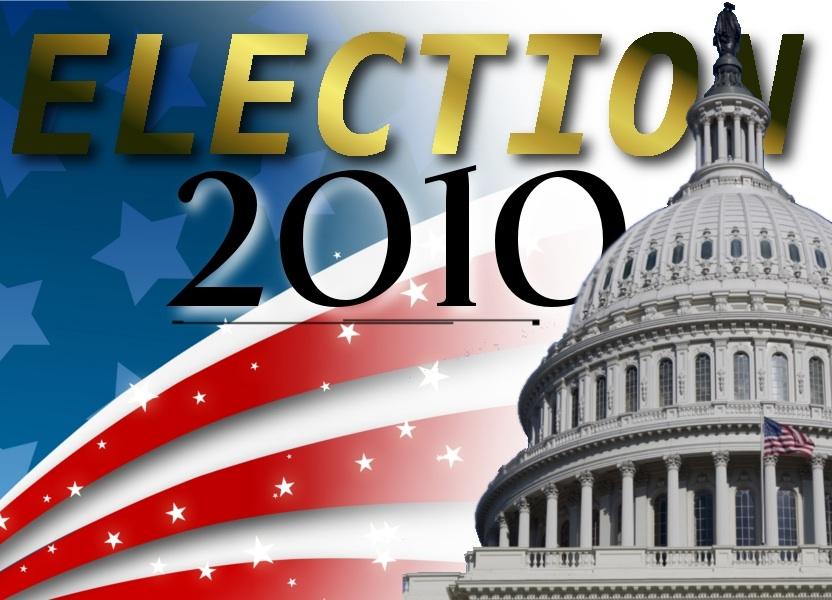“You’ve lost me,” said Ty Buckner, Guilford’s associate vice president for communications and marketing, as he hung up the phone after being called by a solicitor for a local campaign.
“I just wasn’t going to allow myself to respond to this type of negative behavior,” Buckner said in response to what he felt were campaigns driven by negative attacks.
As candidates scrambled to attract voter support leading up to this Tuesday’s midterm elections, the airwaves were inundated with often inflammatory campaign ads. North Carolina was no exception.
The high stakes atmosphere of this year’s elections, fueled by a 24-hour news media placing candidates under a microscope, led to a competitive political atmosphere. This intense environment meant that candidates would often do or say almost anything to get elected.
“It’s gotten to a point where candidates can’t escape the constant barrage of media coverage, and feel that they have no other way to win but to resort to negative campaigning,” Buckner said.
Polarizing rhetoric is a dominant theme in campaigning.
A prominent example was the Senate race between Republican incumbent Richard Burr and Democrat Elaine Marshall. Richard Burr’s ad “Marshall Tales,” featured on his campaign website, shows Elaine Marshall sitting atop an “ivory tower in Raleigh” from which the ad states “she dreams of joining Harry Reid and Nancy Pelosi to solve America’s Problems”.
The ad then cuts to a scene showing Elaine Marshall saying, “Now is not the time to be cutting back (on federal spending),” which the ad uses to imply that Marshall will raise taxes.
Some of the dominant themes of this year’s campaign ads were federal spending, the national health care bill, and the effectiveness of the president’s economic stimulus plan. However, according to the National Journal, candidates often use “attack ads targeting some aspect of their opponents’ personal life as a means of gaining the upper hand (in a race).”
“Candidates run these kinds of (attack) ads when they are behind in the polls and want to change the media narrative of their campaign,” said Associate Professor of Political Science Kyle Dell.
Even low-level races such as those for the state legislature were fraught with mudslinging.
One report in the Greensboro News and Record discusses a mailer — a newsletter sent to voters in specific areas — sent out statewide by the North Carolina Republican Party attacking a bill called the Racial Justice Act. The mailer claimed the bill allowed some death-row inmates to walk out clean if they could prove that race played a role of their conviction.
A Democrat targeted by one of these ads, State Representative Hugh Holliman of Lexington, cried foul play when discovering one of these mailers that referred to him as a “criminal coddler.”
“I can’t stand here and let the state Republican Party say I am soft on crime, because it just isn’t true,” said Holliman in a statement to the News and Record.
This type of derogatory campaigning demonstrates just how far candidates will to go to provoke voters’ emotions and persuade them to get votes.
Simplification and reduction of issues also played a role in this year’s campaign ads.
“If you believe 21 billion dollars (in national debt) is where we need to be … vote for the incumbent (Alma Adams),” said Republican State House candidate Darin Thomas in one of his television ads.
These local ads appeared to be reflective of the national political climate which was influenced on the right by the Tea Party’s demands for smaller government and perception of democrats as de-railing the country.
According to the Washington Post in a recent analysis of the 2010 elections, “half of all voters describe the nation’s economy as ‘poor’ and many feel out of sync with President Obama when it comes to the proper size of government.”
Focusing on hot-button topics, such as religion or race was a strategy also used in some campaigns.
A commercial for Renee Ellmers, a Republican running against incumbent Bob Etheridge in Eastern North Carolina’s 2nd Congressional District, paints her opponent as “un-American” for not taking a stand on the construction of a mosque at Ground Zero.
The ad goes as far as comparing the mosque’s construction to the construction of “victory mosques” constructed in lands conquered by Muslims. Although the issue of mosque-building is of low relevance to Eastern North Carolina, the leverage of such an emotional issue to provoke voter reaction is apparent.
Undoubtedly, these ads can sometimes be effective and sway voters towards one candidate or another in an election. The sweeping Republican victories in both Houses of Congress indicate the national mood of dissatisfaction of with incumbents, which Republican challengers took advantage of in their attacks on Democratic opponents.
However many more are apt to be turned off or become apathetic due to this type of campaigning.
“Time and time again, it is revealed that these ads typically don’t succeed in getting candidates elected, but the long-shot that they may work is enough for candidates to use them anyways,” Dell said.
Others were not as optimistic about the potential for the election cycle to break free from the reign of negative advertising.
“It would take a commitment from both parties to end the influence of negative campaigning on elections,” said Buckner. “It has just evolved to a point where as long as this type of negative advertising is effective in winning elections politicians will continue to use it.”

